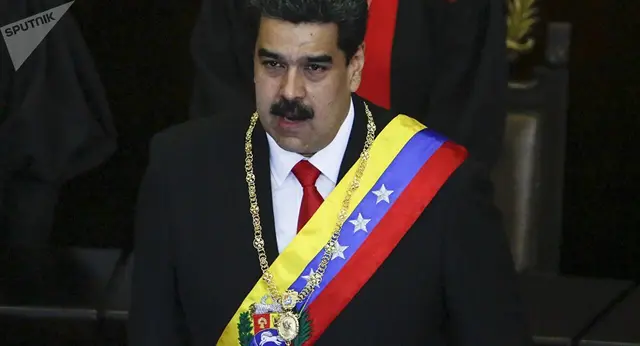"It's not a civil war, but a war on terror," Syrian President Bashar al-Assad's political and media adviser Bouthaina Shaaban told CGTN in an interview ahead of the next round of UN-brokered peace talks.
"Assad is a hero because he stood his ground, and thank God we are witnessing a defeat of terrorism," Shaadan, known as "the face of Syria", noted as she made a string of tough remarks in defense of her government during the seven-year-long bloodshed.
But besides the obvious and the repeated, what CGTN hoped for from the interview was a clear answer to the following question: With peace talks around the corner, will Syria make any compromises and concessions to end the bloodshed?
How will Syria treat the weak anti-Assad militants?
Following the liberation of Al-Bukamal last week, the alliance of Syria, Russia and Iran squeezed militants, who once controlled vast stretches of Syria and Iraq, into a dwindling pocket of territory straddling the border between the two countries.
Shaaban told CGTN that the rebel forces that are still resisting are mostly "paid by international powers like the US" and "appear as if they are representing the opposition".
Shaaban started her answer about how the Assad government is planning to treat the "rebels" during the peace talks by calling them terrorists.
She then stressed that it doesn't mean that there is no room for compromise or reconciliation in Syria.
"There's a difference between people who are ready to lay down their arms and the terrorist groups. That's what Russia asked the United States to do since 2012, but of course the US didn't do that," Shaaban added.
Will Syria carry out Constitutional reforms to meet some of the opposition's demands?
Earlier this week, Assad made a surprise visit to Moscow and met with his Russian counterpart Vladimir Putin. During the meeting, Putin said "It's obvious that the process of reform will not be easy and will require compromises and concessions from all participants, including of course the government of Syria."
Shaaban said it was not a response to Western pressure.
"Syria started carrying out reforms since 2011," she told CGTN. "But I can assure you what the West and its agents are interested in is not reforms. They are interested in destroying Syria."
"Did they want reform in Iraq? They knocked Iraq back 200 years." Shaaban added.
But she said allies and friends like Russia "always stress the unity and territorial integrity of Syria."
Shaaban slammed the US for its attempt to partition Syria.
"So there is a huge difference between the Western and Eastern attitudes. And when I say East, I include Russia, China and Iran who have respect for sovereignty and territorial integrity."
How will Iran's declaration of "end of ISIL" impact the peace talks?
Iranian President Hassan Rouhani declared the end of ISIL on Tuesday, while a senior military commander thanked the "thousands of martyrs" killed in operations organized by Iran to defeat the extremist group in Syria and Iraq.
Shaaban said the victory came as a result of collaboration between the Syrian army, the Russian air force, Iran and Hezbollah. She said the military defeat of ISIL serves a great deal in the peace talks.
"The United States tried to prevent us from liberating especially the bordering areas with Iraq, because the relations between Syria and Iraq are extremely crucial for the return of trade between the two countries".
She said the liberation of these areas from ISIL forces "gave life" to the peace talks, and will hopefully result in a settlement that would put an end to the bloodshed.
Syrian conflict not 'civil war' and Assad a 'hero'
When CGTN used to term "bloody civil war", Shaaban was quick to cut in, saying "It's not a civil war".
She said the Western media call it a civil war because they want to escape the responsibility of financially supporting terrorist groups in Syria. A "civil war is a war that is fought among the people of the country," she proclaimed.
Besides the talks on the nature of the war, Shaaban answered a question from CGTN about the role of Assad in the war.
"Is Assad a puppet of Russia, as some Western media would call, or is the Syrian government a victim of a proxy war, or is he a winner of a long-standing bloodshed?" asked CGTN.
"First of all, the Russian air forces did not come to Syria until the 30th of September, 2015, which means we had been fighting the war against terrorism for four years before the Russians came to help us," Shaaban said.
"Second, we are fighting out of the conviction that this terrorism is absolutely dangerous to the world, so Assad is a hero because he stood his ground and stood with his people. He coordinated his effort with any ally who is coming to Syria."
"So you are calling him a hero, while the Western media is calling him a criminal who is causing most of the humanitarian crisis. How do you look at these diametrically opposed comments on your leader?" CGTN asked Shaaban.
She said the Syrian government does not take comments from their enemies seriously.
"The Western media said many things in the war that have proven to be absolutely false."
"Look at what they did in Libya, look at what they did in Iraq, look at what they did in Yemen. If we read the history, we can see that what they say is irrelevant to what they do," Shaaban argued.
Shaaban is currently visiting China, and has met with Foreign Minister Wang Yi. The visit comes after the Syrian President wrapped up a meeting with his Russian counterpart, ahead of a new round of peace talks.
(CGTN)
 简体中文
简体中文

